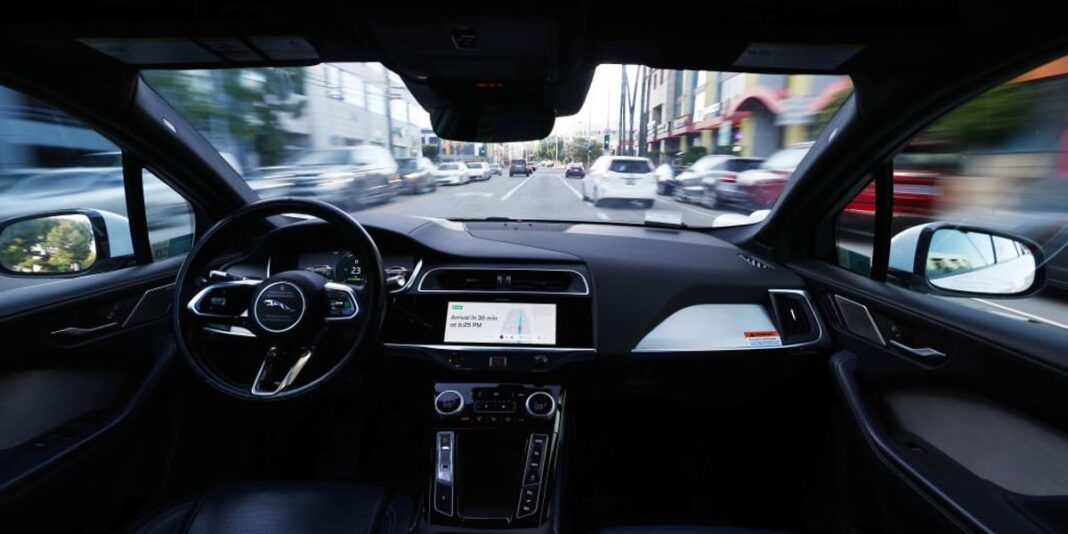For years, people have dreamed about self-driving cars, imagining a futuristic world where autonomous vehicles whisk us around without a human behind the wheel. For many, this future always seems too far away to take seriously. What millions of Americans fail to realize, however, is that this future likely isn’t far off. In fact, the era of self-driving vehicles has already begun.
It is imperative that we acknowledge this reality and start asking crucial questions, including: Will self-driving cars enhance society, and will they threaten any of our liberties?
In the not-so-distant future, you could find yourself unable to summon a car because your intended destination is a controversial political rally, or perhaps you will be denied because of posts you make on social media.
When it comes to technological revolutions, we have been down this road before. In retrospect, new technologies often seem as though they were inevitable and appeared overnight. In reality, the mass adoption of technologies we rely on today took time to reach their current state of ubiquity.
One could argue that the age of cell phones began in the 1980s when large, clunky, and expensive models became available to the general public. As the technology advanced, society saw a rapid adoption through the late 1990s into the early 2000s. Now, we can barely imagine a world without cell phones.
Similar timelines occurred for the development of the internet, social media, and myriad other technologies. One day, people will think of self-driving cars in a similar way.
Contrary to popular belief, tremendous progress has been made in recent years in the development of self-driving technology. Tesla’s autopilot features are already in use on public roadways. Waymo’s self-driving taxis are now operational in several cities. Companies like Cruise and Uber are racing to join the autonomous vehicle revolution.
What once seemed like a distant vision is quickly becoming part of our present. The groundwork has been laid, and while most people may not yet be ready to rely on autonomous vehicles for their daily commutes, we are undeniably at the dawn of a new age of transportation.
The question is not whether self-driving cars will become part of our daily lives but how they will transform the way we move, interact, and live. Perhaps most importantly, who will control that transformation?
In the future, you’ll own nothing
For more than a century, owning a car has been a symbol of independence and mobility. Today, most people own their own vehicles, allowing them to hop behind the wheel and travel anywhere they wish. While you might think a transition to self-driving cars would not alter this relationship, it is likely that the future of autonomous vehicles won’t look like the world we’ve become accustomed to. Instead, we’re likely to see fleets of self-driving cars controlled by a few massive corporations, offering transportation as a service instead of as a tangible product. For many families, self-driving cars will be far too expensive to own. Renting will be the only way to take advantage of this new technology.
Uber and Google’s Waymo have already begun to position themselves as leaders in this new transportation paradigm. Rather than selling cars to individuals, these corporations envision a system where people no longer own vehicles but summon autonomous cars on demand, much like using a ride-sharing app.
Google’s Waymo is currently leading the way in this regard. With more than 20 million miles driven, Waymo boasts of having self-driving taxis serving customers in several major U.S. cities, including San Francisco, Los Angeles, and Phoenix. In August 2024, Waymo announced it surpassed 100,000 paid trips per week, a significant milestone for the company.
The largest ride-sharing company in the world, Uber, is getting into the self-driving game too. Just a few weeks ago, Waymo and Uber announced a partnership that would make autonomous cars available on the Uber app for customers in Austin, Texas, and Atlanta, Georgia, in 2025. This announcement comes only months after a similar agreement was struck between Uber and General Motors’ Cruise company.
Google, Uber, and General Motors are not the only ones pushing society toward this transportation model, either. Amazon, another one of the largest technology companies in the world, has a project called Zoox, which also imagines a world where self-driving cars are offered as a service rather than a product.
Following Uber’s playbook, this new transportation system will be touted as safe, efficient, and, most of all, convenient. You won’t need to worry about parking or maintaining your car. You won’t need to buy insurance or new tires. You will simply order a ride through an app on your phone — whenever you want, wherever you want.
Potential harms
However, despite the remarkable benefits offered by self-driving technology and centralized ownership of transportation, the proliferation of self-driving vehicles poses many potential threats to freedom as well.
For example, in a world where most people rely on corporate-controlled fleets, mobility can be controlled by the businesses that own and operate the vehicles, not individuals. When it comes to transportation, Americans could soon find themselves at the mercy of a few powerful tech companies, such as Google, Amazon, and Uber. If they own a large percentage of the vehicles in an area, they, not the citizens, will have the power to determine how, when, and where people can travel.
This is where things get really troubling. Imagine these fleets of self-driving cars being run like today’s social media platforms. Social media companies have immense control over the flow of information, deciding what content gets seen and what gets suppressed. What if the same principle were applied to transportation?
In a world where a few corporations control most of the vehicles on the road, it’s not far-fetched to imagine these companies exerting similar control over where you can go and how you get there.
What happens if a corporation decides to restrict access to certain areas? What if certain groups are denied access to transportation based on their political beliefs, in the same way social media platforms ban or restrict users? And what happens when these companies start collecting and monetizing data about our every move — just as they do with our online activity? What if all vehicle travel is limited to battle climate change or some other alleged environmental crisis?
In the not-so-distant future, you could find yourself unable to summon a car because your intended destination is a controversial political rally, or perhaps you will be denied because of posts you make on social media. Ride-sharing apps have already taken actions like these in the past.
Corporations could also use advanced algorithms to dictate which neighborhoods deserve better service or which routes should be ignored entirely.
The debates over self-driving cars should not merely be about convenience or safety. Perhaps our biggest concern should be liberty. If we’re not careful, we could be handing over control of our basic mobility to massive corporations with a long track record of bias and questionable judgment.
The era of self-driving cars is not some distant piece of science fiction. It’s here now, and it’s time to start taking it seriously.




